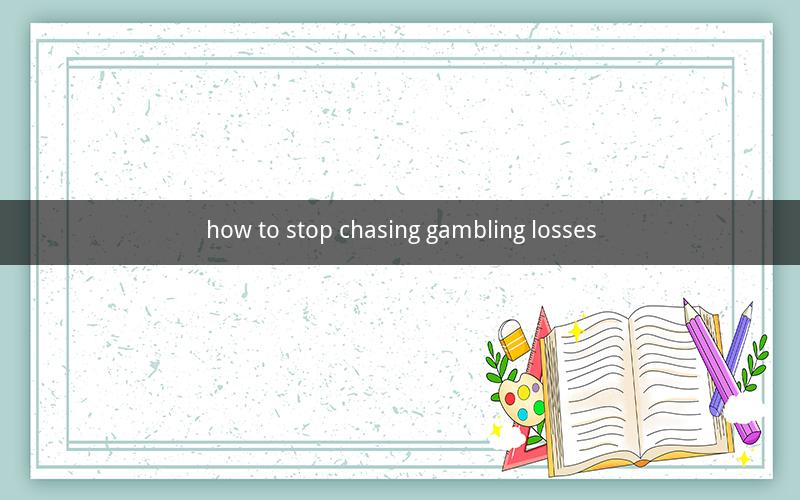
Table of Contents
1. Understanding the Problem
2. Identifying the Signs of a Gambling Problem
3. The Psychological Impact of Chasing Gambling Losses
4. Strategies to Stop Chasing Gambling Losses
- Setting a Budget
- Avoiding Triggering Situations
- Seeking Support
5. Professional Help and Resources
6. Case Studies and Success Stories
7. Preventing Future Gambling Relapses
1. Understanding the Problem
Chasing gambling losses is a common issue among individuals who struggle with gambling addiction. It refers to the persistent pursuit of gambling in the hope of recouping previous losses. This behavior can lead to significant financial, emotional, and social consequences. Understanding the nature of this problem is crucial in developing effective strategies to overcome it.
2. Identifying the Signs of a Gambling Problem
Recognizing the signs of a gambling problem is the first step in addressing it. Some common indicators include:
- Feeling compelled to gamble more to recoup losses
- Lying about gambling activities
- Neglecting responsibilities due to gambling
- Feeling remorseful after gambling
- Using gambling as a means to cope with stress or emotional pain
3. The Psychological Impact of Chasing Gambling Losses
Chasing gambling losses can have severe psychological consequences. Individuals may experience increased anxiety, depression, and feelings of guilt. The constant pursuit of winning back lost money can lead to a cycle of addiction, making it difficult to break free from the cycle.
4. Strategies to Stop Chasing Gambling Losses
Several strategies can help individuals stop chasing gambling losses:
Setting a Budget
Establishing a budget is essential in managing gambling habits. Allocate a specific amount of money for gambling and stick to it. Avoid using funds allocated for essential expenses or savings.
Avoiding Triggering Situations
Identify situations that trigger your urge to gamble and avoid them. This may include avoiding casinos, online gambling platforms, or places where gambling is frequently discussed.
Seeking Support
Seeking support from friends, family, or support groups can provide emotional and practical assistance. Engaging with others who understand your struggles can help you stay motivated and accountable.
5. Professional Help and Resources
If you find it challenging to overcome your gambling addiction, seeking professional help is crucial. Therapists, counselors, and addiction specialists can provide tailored strategies and support to address your specific needs.
6. Case Studies and Success Stories
Numerous individuals have successfully overcome their gambling addiction by implementing these strategies. Reading case studies and success stories can provide inspiration and encouragement.
7. Preventing Future Gambling Relapses
To prevent future relapses, it is essential to practice self-discipline and develop healthy habits. Some tips include:
- Keeping a journal to track your gambling activities and feelings
- Engaging in alternative activities to cope with stress and boredom
- Celebrating small victories and milestones
- Staying connected with support systems
Frequently Asked Questions
Q1: Can I overcome my gambling addiction on my own?
A1: While it is possible to overcome gambling addiction independently, seeking professional help and support from others can significantly improve your chances of success.
Q2: How long does it take to overcome a gambling addiction?
A2: The duration of recovery varies from person to person. Some individuals may experience immediate improvement, while others may require ongoing support and treatment.
Q3: Can I gamble responsibly?
A3: Responsible gambling is possible for some individuals, but it is crucial to assess your risk factors and set clear boundaries to prevent addiction.
Q4: What are the most effective treatment options for gambling addiction?
A4: Effective treatment options include therapy, counseling, support groups, and medication. The best approach depends on your specific needs and preferences.
Q5: How can I stay motivated during the recovery process?
A5: Staying connected with support systems, celebrating milestones, and setting realistic goals can help maintain motivation during the recovery process.
Q6: Can my gambling addiction affect my relationships?
A6: Yes, gambling addiction can strain relationships with friends, family, and loved ones. Seeking help and support can help improve these relationships.
Q7: Is there a genetic component to gambling addiction?
A7: Research suggests that genetics may play a role in gambling addiction, although environmental factors also contribute to the development of this condition.
Q8: Can I gamble online?
A8: It is possible to gamble online, but it is crucial to set limits and boundaries to prevent addiction. Be cautious of websites offering unrealistic odds and bonuses.
Q9: How can I support someone struggling with a gambling addiction?
A9: Offer empathy, patience, and understanding. Encourage your loved one to seek professional help and provide support throughout the recovery process.
Q10: Can I recover from a gambling addiction if I have relapsed?
A10: Yes, relapse is a common part of the recovery process. It is essential to learn from these experiences and continue seeking help and support to overcome your addiction.